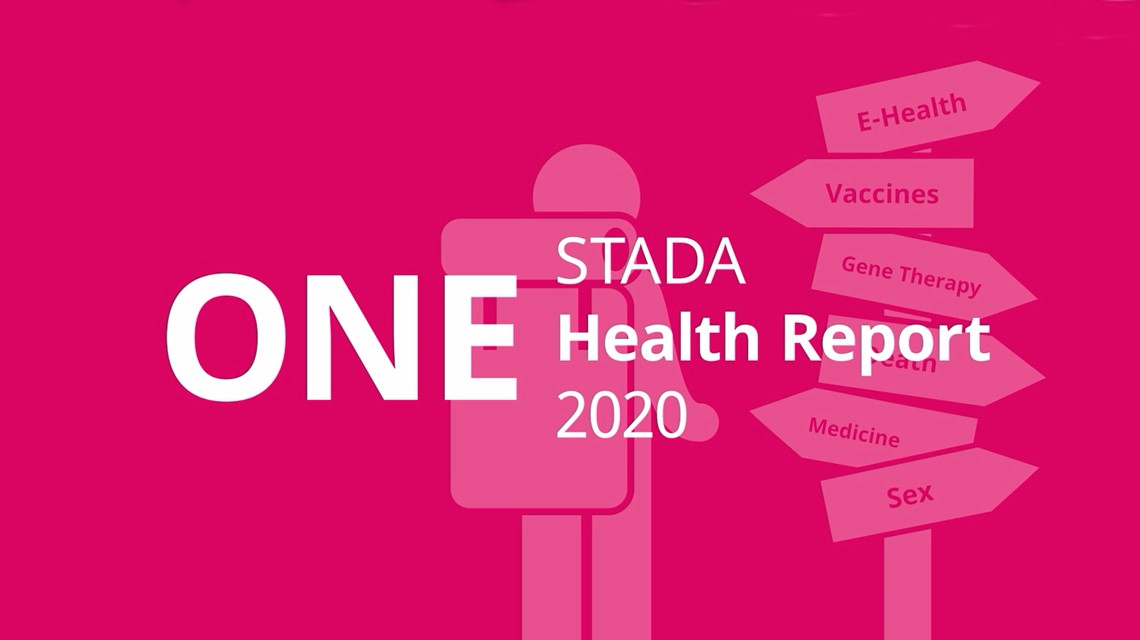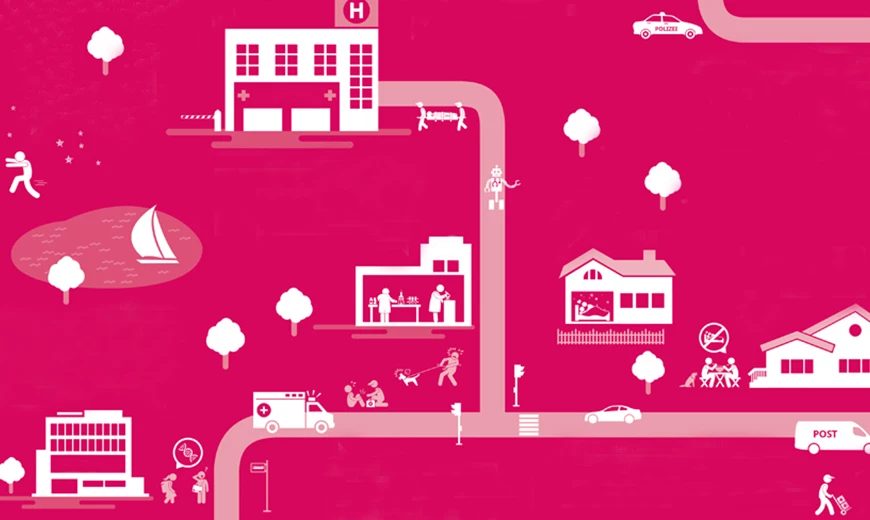Select your country
Websites worldwide
Select a country to go to the website of the respective STADA sales company.
Australia (1)
Austria (1)
Belarus (1)
Belgium (1)
Bosnia-Herzegovina (1)
Bulgaria (1)
China (1)
Croatia (1)
Czech Republic (2)
Denmark (1)
France (1)
Hungary (1)
Ireland (1)
Italy (1)
Montenegro (1)
Netherlands (2)
Poland (1)
Portugal (1)
Romania (1)
Serbia (1)
Slovakia (1)
Slovenia (1)
Spain (1)
Switzerland (1)
Thailand (1)
The Phillippines (1)
United Kingdom (3)
Vietnam (2)
Health Report 2020
Europe demands compulsory vaccinations
STADA Health Report 2020: A study with over 24,000 participants from twelve European countries on “How Europe moves towards the future” – including a corona special with more than 6,000 respondents from six countries. 61 percent of Europeans are satisfied with the medical care provided during the corona pandemic. However, predictions for the future look rather gloomy: 36 percent are expecting a financial crisis, 40 percent fear for their jobs.
Interview: Dr. Shari Langemak
Dr Langemak, the STADA Future Index reveals that the readiness for remote treatment has increased significantly compared to the previous year. Will we only be called up for consultations from within our own four walls?
Dr. Langemak: The corona pandemic had a catalytic effect on telemedicine. Just a few weeks ago, remote treatment was mainly of interest to doctors and patients who are generally open to new technology. The pandemic suddenly forced a lot more people to give it a try. Treatment via webcam is no longer a niche product, but is increasingly perceived as an alternative to a trip to the doctor’s office. I believe that the experience we gained during the pandemic has eliminated many of the former reservations. This does not mean, however, that a visit to the doctor is rendered entirely irrelevant. Telemedicine cannot and should not do this at all.
Many Europeans have lingering doubts about the digitisation of their health data. Do we have to “take the plunge” regardless?
Dr. Langemak: There is no way around digitisation. Be it the development of more effective and personalised medication or the prediction and mitigation of future epidemics: We need more and better-quality research data and analyses. However, two factors are imperative for laying the groundwork: ensuring maximum possible data security and informing users and providers of data of the potential risks they face when releasing their data. There is already a good legal framework in place at a European level. However, the current debate on corona tracking and tracing apps shows that this is not always sufficient in individual cases.
Must we therefore develop a new approach towards health from a more global perspective in the future?
Dr. Langemak: The coronavirus has brought about an unprecedented global challenge in the healthcare sector. This puts us in the unique position of having to work together effectively to get this pandemic under control again. The close and systematic cooperation of research centres around the world is essential for the development of a vaccine against the virus. This entails scientific exchange and also the sharing of research data. Even though healthcare systems and resources differ internationally, we are nevertheless presented with identical health challenges. This not only includes viral pandemics but also chronic and cancerous diseases as well as the health consequences of environmental pollution due to fine dust and climate change. These challenges cannot be mastered on a national level alone.
There has been much debate as to whether the outbreak of the corona pandemic was foreseeable. What is certain is that healthcare systems across the world were taken to the limits of their load-bearing capacity. What lesson can we learn from this?
I would prefer to leave recommendations regarding health policy to the respective authorities in this field. However, we are currently experiencing how crucially important or even essential innovation is in the health sector. This includes:
- Not only do we need to identify promising innovations in the health sector sooner, but they need to be made accessible, for example by adapting them in standard care at an early stage. Especially start-ups, one of the main drivers for innovation, require support.
- An immense data pool is required to fight diseases more efficiently. Digitisation of the health sector together with the introduction of the digital patient record has the potential to better meet the demand for data. This requires an improved IT infrastructure on a national and European level.
- Patient-centred communication and education are vital for the avoidance of future pandemics. It is crucial to communicate with people at eye level and to involve them in health policy and individual decisions.
Speaking of communication: Two in three Europeans are afraid of antibiotic-resistant germs, but fewer than half of them know that antibiotics are used exclusively to combat bacteria. What are the implications of this gap in knowledge?
Dr. Langemak: Improved health education is one of the most important measures to improve the health of many people, thus reducing costs. However, this insight is still quite new, because for a long time a system has been established in medicine in which the doctor alone has all the medical knowledge. This is not only highly problematic with regard to the patients’ self-determination. If we want people to live healthier lives we must be able to communicate to them how and why they should do so. The lack of knowledge about antibiotics is an excellent example. Excessive or incorrect intake provides the breeding ground for dangerous resistances.
Our genes can also be a “breeding ground” for diseases. Many Europeans are still widely unaware that genes can promote the onset of certain diseases such as osteoporosis. Simultaneously, there is scepticism about gene therapies. How do you assess this connection?
Dr. Langemak: Educating the public about gene therapy will be one of the defining challenges of the coming years. CRISPR-Cas9, a relatively new method, has made alterations of genetic material – so-called gene editing – significantly easier and more effective. This increases the hope for a cure for diseases that were previously difficult or impossible to treat. First successes have already been achieved in the treatment of blood diseases such as sickle cell anaemia. In principle, the exchange of defective genes is also conceivable for other genetically caused diseases. It could also make treatment of diseases and increased genetically determined health risks prior to birth a possibility. Of course, all this raises substantial ethical concerns for the individual as well as society which can only be addressed through a combination of improved education and public discourse.








